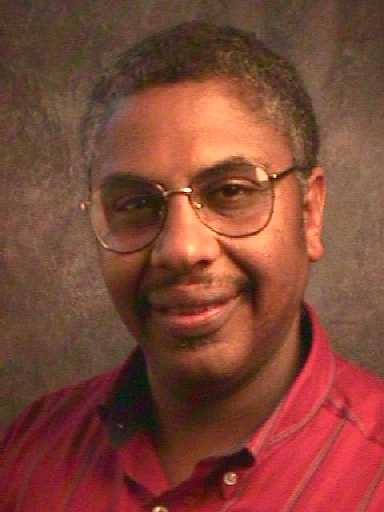Tim Styer
From
the time he used to visit his aunt here when he was a boy, Tim
Styer always wanted to live in Mt. Airy. He has
lived here for sixteen years and likes it very  much.
He is attracted to the diversity of people, the architecture, and the trees. But
one problem in Mt. Airy has come to bother Tim a great deal. To the benefit of
all of us, Tim has worked hard to deal with it.
much.
He is attracted to the diversity of people, the architecture, and the trees. But
one problem in Mt. Airy has come to bother Tim a great deal. To the benefit of
all of us, Tim has worked hard to deal with it.
Tim
Styer was one of the founders of Mt. Airy Neighbors Against Drugs (MANAD). Tim
and his wife Darlene were responding to growing problems with drugs and drug
violence on Chew Avenue. Along with the principal of the Emlen School and his
neighbors, Tim began a coordinated effort to up clean up the drug problem in his
neighborhood. Up to 80 people volunteered at one time or another to work for
MANAD. Two or three nights a week MANAD took to the streets. There were marches
and vigils where drug activity was occurring. MANAD worked well with, and helped spur on the law
enforcement community: the state police, the DEA, the FBI, as well as the
Philadelphia Police. One way MANAD helped their efforts was by maintaining a
database of people involved in the drug trade. Eventually MANAD’s activities
made a big difference: They rid that section of Mt. Airy of most drug activity,
at least for a time. As Tim points out, the struggle against drugs is an ongoing
battle. Drug activity periodically
returns and MANAD develops new strategies to combat it.
Tim
started MANAD because he wanted to help maintain the neighborhood and make it
better. He found that Mt. Airy is an easy neighborhood to work in since “people
are easy to get along with here.” While
there is a diversity of opinion on many issues, that diversity leads to “healthy
stresses” which, he says, lead to solutions to community problems.
Tim’s
efforts to aid his neighbors have carried over to his work. In 1997, he started
his own company, Urban Works. It’s
an employee-owned company that targets low income socially disadvantaged people
and employs them in the custodial industry.
Ninety two percent of the employees of Urban Works are coming off
welfare. After six months, they become part owners of the company. Tim is
developing a workforce of highly trained, skilled and motivated people who can
deliver superior service, and who are paid higher wages than the industry
average. Tim says, “Workers make decisions, and own 40% of the company.
New hires are interviewed by a committee of workers, and then join a
self-directed work team that chooses its own coach. We are
shifting the perception that people have about urban workers. Employers are
finding out that we have a more stable workforce and a more skilled workforce.”
 much.
He is attracted to the diversity of people, the architecture, and the trees. But
one problem in Mt. Airy has come to bother Tim a great deal. To the benefit of
all of us, Tim has worked hard to deal with it.
much.
He is attracted to the diversity of people, the architecture, and the trees. But
one problem in Mt. Airy has come to bother Tim a great deal. To the benefit of
all of us, Tim has worked hard to deal with it. much.
He is attracted to the diversity of people, the architecture, and the trees. But
one problem in Mt. Airy has come to bother Tim a great deal. To the benefit of
all of us, Tim has worked hard to deal with it.
much.
He is attracted to the diversity of people, the architecture, and the trees. But
one problem in Mt. Airy has come to bother Tim a great deal. To the benefit of
all of us, Tim has worked hard to deal with it.